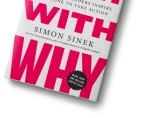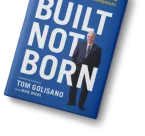Blogs are informal and informational method of content writing, where topics can be anything. The topics vary from ranging from philosophy, religion, and arts to science, politics, and sports, to more personal online diaries or online brand advertising of a particular individual or company.
Writing blogs can be a great way of self-expression, to talk about subjects that excite you and are important. There are several ways you can start writing blogs effortlessly. When the future is concerned, blog writing is a hit, it is beneficial today and will provide positive growth in the future of content writing. Write your blog as it is what you want to pursue and follow a few simple steps to move forward in the right direction.
Step 1
First thing first, choose your blog topic, as simple and as obvious it may sound, but it is one tiny-tricky first step. Before starting writing, a writer needs to be sure about what he or she is writing about. Choose a topic or subject that you are passionate about, as you are passionate about a topic, you will be able to write about it with full enthusiasm and more power. You will be able to express yourself in a more connected and emotional way. Along with that, do not forget your audience, write for them. The topic that excites you must engage your readers too. At the end of the day, that is the requirement. Do not be afraid of the negatives, they are anyway present in every scenario. Research a lot before initiating as it is going to make your blog more powerful as it will help you to present your thoughts backed with facts.
A clear angle is as important as the first step. If you start with a broad topic, you have a lot to cover, and it can hamper your ability to express as the focus will shift to being factual. The essence of personal writing and self-expression may be lost. To prevent that focus on a particular angle and write about it, backed up with your research and personal touch, make sure you have decided a clear angle to focus on.
Step 2
Organise, structure in a way that the blog you have written must be clear enough to be understood and appreciated. Organise what you want to include and talk about. It is not difficult. Make pointers and structure your work in a way that you cover every topic and maintain the flow. Remember, it is important to engage the reader and maintaining the flow is a must to achieve that. Just organise your thoughts before writing and get a well-structured blog ready to present to the target audience.
Open the blog with a strong paragraph. The introduction of the blog must be engaging enough to make the reader want to continue reading. Tell about the subject, make it clear in the beginning so that after understanding the subject properly, the readers get intrigued into understanding the topic and the point of the blog better. In simple words, the opening paragraph can act as a first impression your writing will create to your audience.
Step 3
Write naturally, in your own way. Do not try to write like anyone. You may admire someone’s writing, get inspired, that is a good thing, but do not copy any other writer’s style. Make sure you write naturally, as mentioned above, blogs can be a good self-expression, so why do you want to hide that? A writer can choose writing in the first person. Give examples, write a story explaining your point. You have that liberty in the blog content writing. Use the storytelling ways to make your point visible through stories. It is evident that the stories are used for a long time to educate people and make them aware of any subject. Use the storytelling method to make the blog engaging too.
Create the blog by writing emotionally, you have written naturally and now include your emotional writing too. This works a lot with engagement, and that is the point. You can include basic emotions to your blog like fear, anger, sadness, joy, disgust, surprise, trust and anticipation. But make sure you don’t overuse them. It can result in a totally different undesired direction. Use the emotions while expression during storytelling, not every time. Remember, after all, it is a blog for informational purpose, not a diary. Make sure that you keep it real and do not make the content overwhelming.
Final Step
Finally, close the blog with a strong paragraph. You need to make sure that the conclusion itself is effective enough to make the blog go with the reader and remain in their minds. This will create engagement and encourage and increase the share in social media of the blog. You have come this far keeping every point in mind, now close the blog with a strong yet very natural approach to make the point clear. Make sure it suits your writing style, as it may vary from writer to writer, their way of expression.
Summarize every point in a way that the subject of the blog remains visibly clear to the audience. Add some closing thoughts too. Write it in a way that makes the readers go back to read the full blog again. You can add questions so that the readers are encouraged to leave a comment. This will increase the engagement and build community around your blog. In the end, ask your readers to share and promote your work. This can help a lot!
Keep these points in mind while writing your very own blog about the topic that excites you, encourages you to write, can make you move ahead with your idea about it. Make sure that you follow your own style, at the end of the day the blog is your journey of self-expression, make every word count. Write it in a way that it reaches the readers’ mind and heart, conveying the passion you carry in your heart for writing.































